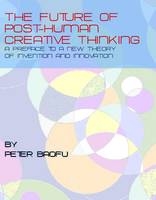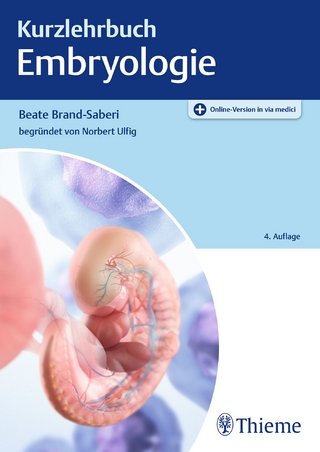
The Future of Post-Human Creative Thinking
Cambridge Scholars Publishing (Verlag)
978-1-4438-0488-2 (ISBN)
Dr. Peter Baofu is the author of 20 books, with 2 more books to appear in the first half of 2009, in numerous fields ranging from the social sciences through the humanities and the formal sciences to the natural sciences. He is known for his pioneering works on “post-humanity,” “post-capitalism,” “post-democracy,” “contrastive advantages,” “ambivalent technology,” “authoritarian liberal democracy,” “the post-post-Cold-War era,” “post-civilization,” “transformative aesthetic experience,” “synthetic information architecture,” “contrastive mathematical logic,” “dialectic complexity,” “after-postmodernity,” “sophisticated methodological holism,” “post-human space-time,” “existential dialectics,” “unfolding unconsciousness,” “floating consciousness,” “hyper-spatial consciousness,” and so on. He earned an entry to the list of “prominent and emerging writers” in Contemporary Authors (2005) and another honorary entry in The Writers Directory (2007). He was a U.S. Fulbright Scholar in the Far East. He had taught as a professor at different universities in Western Europe, the Caucasus, the Middle East, the Balkans, Central Asia, and North America. He finished more than 5 academic degrees, including a Ph.D. from M.I.T., and was a summa cum laude graduate.
| Verlagsort | Newcastle upon Tyne |
|---|---|
| Sprache | englisch |
| Maße | 148 x 212 mm |
| Themenwelt | Kunst / Musik / Theater |
| Schulbuch / Wörterbuch ► Wörterbuch / Fremdsprachen | |
| Geisteswissenschaften ► Psychologie ► Verhaltenstherapie | |
| Geisteswissenschaften ► Sprach- / Literaturwissenschaft ► Sprachwissenschaft | |
| Studium ► 1. Studienabschnitt (Vorklinik) ► Histologie / Embryologie | |
| Sozialwissenschaften | |
| ISBN-10 | 1-4438-0488-6 / 1443804886 |
| ISBN-13 | 978-1-4438-0488-2 / 9781443804882 |
| Zustand | Neuware |
| Informationen gemäß Produktsicherheitsverordnung (GPSR) | |
| Haben Sie eine Frage zum Produkt? |
aus dem Bereich


